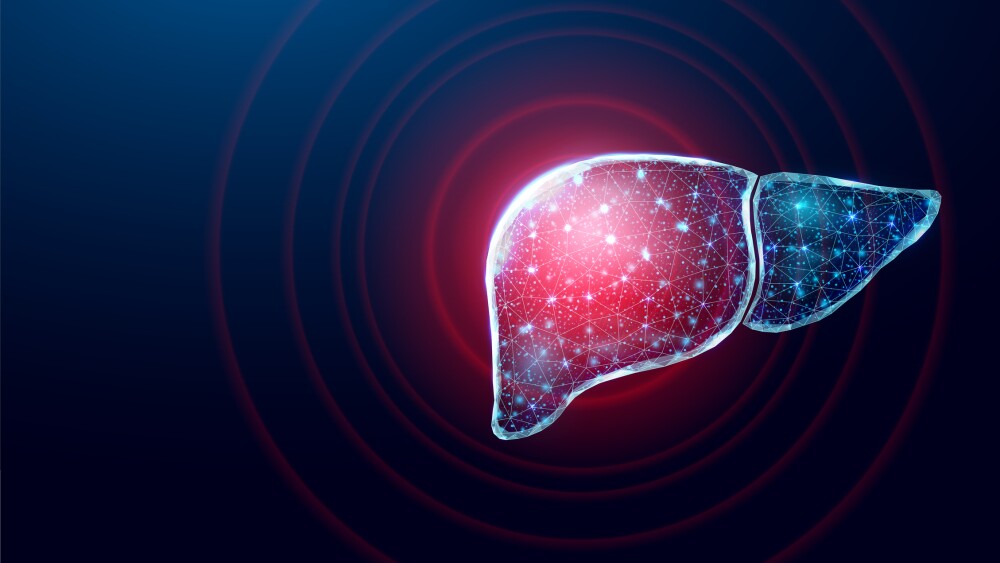Clinical response and safety data with ACTR707 provide proof-of-mechanism for the ACTR platform and support the ongoing Phase 1 dose-escalation trial in relapsed or refractory NHL
Clinical response and safety data with ACTR707 provide proof-of-mechanism for the ACTR platform and support the ongoing Phase 1 dose-escalation trial in relapsed or refractory NHL
CAMBRIDGE, Mass., Dec. 07, 2019 (GLOBE NEWSWIRE) -- Unum Therapeutics Inc. (NASDAQ: UMRX), a clinical-stage biopharmaceutical company focused on developing curative cell therapies for cancer, today announced Phase 1 clinical updates for its Antibody-Coupled T cell Receptor (ACTR) engineered T-cell therapies, ACTR707 and ACTR087, in patients with relapsed or refractory CD20+ non-Hodgkin Lymphoma (r/r NHL) at the ASH Annual Meeting, being held December 7-10, in Orlando, FL.
“The clinical data presented at this year’s ASH include updates from the ongoing Phase 1 trial of ACTR707 in combination with rituximab and the completed Phase 1 trial of ACTR087 in combination with rituximab, both conducted in patients with relapsed or refractory CD20+ NHL,” said Jessica Sachs, M.D., Chief Medical Officer of Unum. “The data with ACTR707 at this year’s ASH continue to support further dose-escalation in this Phase 1 trial and provide proof-of-mechanism for the ACTR platform that we are also applying in our lead program, a Phase 1 trial with ACTR707 in combination with trastuzumab in HER2+ solid tumor cancers. Safety data from the Phase 1 trial with ACTR087 presented at this year’s ASH provide learnings that are being applied to ongoing clinical trials with ACTR T cell products.
Poster (#1587) Title: “Preliminary Clinical Results from a Phase 1 Study of ACTR707 in Combination With Rituximab in Subjects with Relapsed or Refractory CD20+ Non-Hodgkin Lymphoma”
- ATTCK-20-03 is a Phase 1, multicenter, open-label, single-arm, dose-escalation trial evaluating ACTR707 in combination with rituximab in patients with r/r CD20+ NHL who, among other criteria, received adequate prior anti-lymphoma therapy, including anti-CD20 monoclonal antibody and chemotherapy. In this update from the first 20 patients treated, treatment with ACTR707 combined with rituximab generated clinical responses with no reports of cytokine-release syndrome (CRS) or severe neurotoxicity.
- As reported today at ASH, a complete response was achieved in 40% (eight of 20) of patients in Cohorts 1 through 4. Of the eight complete responders, four remained in complete response at six months of follow-up, two remain in complete response but have not yet reached the six-month timepoint for evaluation, and two progressed before the six-month timepoint (Table 1).
| Table 1: ACTR707 Preliminary Phase 1 trial clinical response results in r/r NHL (Cohorts 1-4) | |||||
| Clinical Response (1) | Cohort 1 (n=6) | Cohort 2 (n=3) | Cohort 3 (n=5) | Cohort 4 (n=6) | Cohorts 1-4 (n=20) |
| Complete Response | 3 | 1 | 2 | 2 | 40% (8/20) |
| Partial Response | 0 | 1 | 2 | 0 | 15% (3/20) |
| Stable Disease | 0 | 0 | 0 | 1 | 5% (1/20) |
| Indeterminate Response | 1 | 0 | 0 | 0 | 5% (1/20) |
| Progressive Disease | 2 | 1 | 1 | 3 | 35% (7/20) |
| Overall Response Rate | 50% (3/6) | 67% (2/3) | 80% (4/5) | 33% (2/6) | 55% (11/20) |
| ACTR707+T cells administered, target per patient (range) | 25M (23-38M) | 40M (30-50M) | 55M (45-55M) | 80M (65-100M) | |
| (1) Data cutoff as of Nov 2019 | |||||
- In Cohorts 1 through 4, ACTR707 was reported to be well-tolerated in combination with rituximab. No dose-limiting toxicities (DLTs), no adverse events of CRS, and no severe neurological adverse events including neurotoxicity have been reported as of the November 2019 cutoff (Table 2).
| Table 2: ACTR707 Preliminary Phase 1 trial safety results in r/r NHL (Cohorts 1-4) | ||||
| Safety Event (1) | Cohort 1 (n=6) | Cohort 2 (n=3) | Cohort 3 (n=5) | Cohort 4 (n=6) |
| Dose-limiting toxicities | 0 | 0 | 0 | 0 |
| Severe neurologic events (> Grade 3) | 0 | 0 | 0 | 0 |
| CRS (any grade) | 0 | 0 | 0 | 0 |
| ACTR707-related SAEs | 1 | 2 | 0 | 1 |
| febrile neutropenia | 1 | 1 | 0 | 1 |
| cytopenia | 0 | 1 | 0 | 0 |
| (1) Data cutoff as of Nov 2019 | ||||
- Given favorable tolerability observed to date at relatively low doses, Unum announced in November plans to continue dose escalation in two additional cohorts (approximately four patients per cohort) in the trial, escalating the maximum dose up to 180M ACTR707+ T cells. Patient enrollment and planned dosing is underway, and Unum plans to report preliminary results from this dose escalation during 2020.
Additional details about the ATTCK-20-03 Phase 1 trial can be found here.
Oral Presentation Title (#244): “A Phase 1 Study of ACTR087 in Combination with Rituximab, in Subjects with Relapsed or Refractory CD20-Positive B-Cell Lymphoma”
Following the decision in 2018 to prioritize ACTR707 over ACTR087 for future development in r/r NHL and solid tumors, Unum completed enrollment in the ATTCK-20-2 trial, a Phase 1, multicenter, open-label, single-arm, dose-escalating trial evaluating ACTR087 in combination with rituximab in patients with r/r CD20+ NHL.
- In this trial, ACTR087+ T cells, when combined with rituximab, expanded and persisted long-term (observed up to 1029 days in one patient) and generated complete responses lasting greater than six months in 20% (four of 20) of evaluable patients with aggressive CD20+ malignancies. In this trial, ACTR087 was administered across three cohorts (mean dose range of 19-67M cells).
- Severe T cell-mediated toxicities (CRS and neurotoxicity) occurred in four of 26 patients who received ACTR087 in combination with rituximab, with different timing and symptomatology from those observed with currently available CD19 CAR T cell therapies. Baseline inflammation appeared to predispose patients to severe toxicity.
Additional details about the ATTCK-20-2 Phase 1 trial can be found here.
About Unum Therapeutics
Unum Therapeutics is a clinical-stage biopharmaceutical company focused on developing curative cell therapies to treat a broad range of cancer patients. Unum’s novel proprietary technologies include Antibody-Coupled T cell Receptor (ACTR), an autologous engineered T-cell therapy that combines the cell-killing ability of T cells and the tumor-targeting ability of co-administered antibodies to exert potent antitumor immune responses, and Bolt-On Chimeric Receptor (BOXR), designed to improve the functionality of engineered T cells by incorporating a “bolt-on” transgene to overcome resistance of the solid tumor microenvironment to T cell attack. Unum has multiple programs in Phase 1 clinical and preclinical testing, including: ACTR707 used in combination with trastuzumab in adult patients with HER2+ advanced cancer and used in combination with rituximab in adult patients with r/r NHL; and BOXR1030 expressing the GOT2 transgene and targeting GPC3+ solid tumor cancers. The Company is headquartered in Cambridge, MA.
Follow Unum Therapeutics on social media: @UnumRx, and LinkedIn.
Forward looking Statements
This press release contains forward-looking statements including, without limitation, statements regarding our future expectations, plans and prospects, including projections regarding future revenues and financial performance, our long-term growth, enrollment and results for our preclinical and clinical activities, the development of our product candidates, including the ACTR product candidates and the BOXR platform and product candidates, and the anticipated timing and success of any of our preclinical studies, clinical trials and regulatory filings, as well as other statements containing the words “anticipate,” “believe,” “continue,” “could,” “estimate,” “expect,” “intend,” “may,” “might,” “plan,” “potential,” “predict,” “project,” “should,” “target,” “will,” or “would” and similar expressions, constitute forward-looking statements within the meaning of the safe harbor provisions of The Private Securities Litigation Reform Act of 1995, as amended. We may not actually achieve the forecasts disclosed in our forward-looking statements, and you should not place undue reliance on our forward-looking statements. Actual results could differ materially from the projections disclosed in the forward-looking statements we make as a result of a variety of risks and uncertainties, including risks related to the accuracy of our estimates regarding expenses, future revenues, capital requirements, and the need for additional financing, the success, cost and timing of our product development activities and clinical trials, our ability to obtain and maintain regulatory approval for our product candidates, and the other risks and uncertainties described in the “Risk Factors” sections of our public filings with the Securities and Exchange Commission. In addition, the forward-looking statements included in this press release represent our views as of the date hereof. We anticipate that subsequent events and developments may cause our views to change. However, while we may elect to update these forward-looking statements at some point in the future, we specifically disclaim any obligation to do so. These forward-looking statements should not be relied upon as representing our views as of any date subsequent to the date hereof.
Investor Contact:
Stern Investor Relations, Inc.
Stephanie Ascher, 212-362-1200
stephanie@sternir.com
Media Contact:
Lissette Steele, 202-930-4762
lsteele@vergescientific.com



